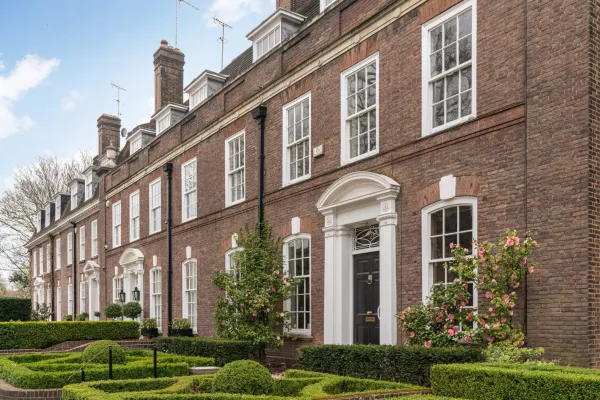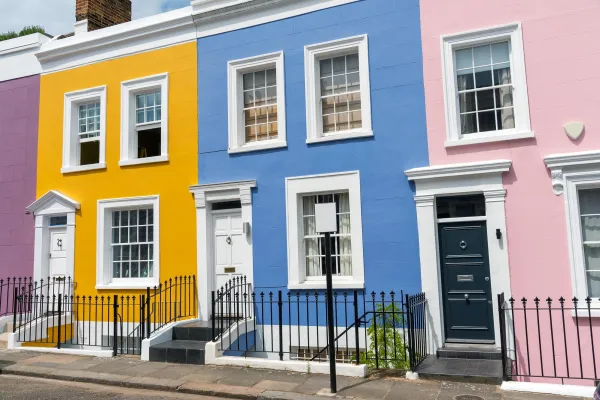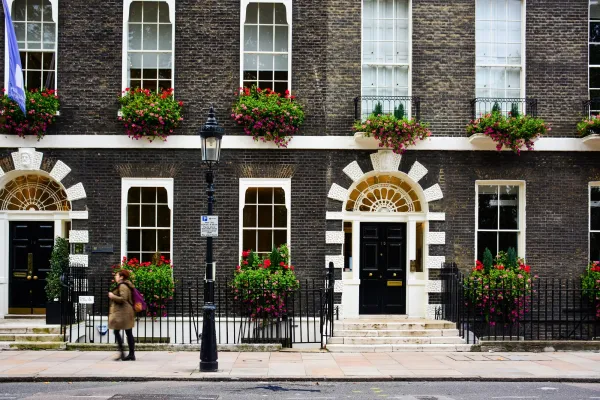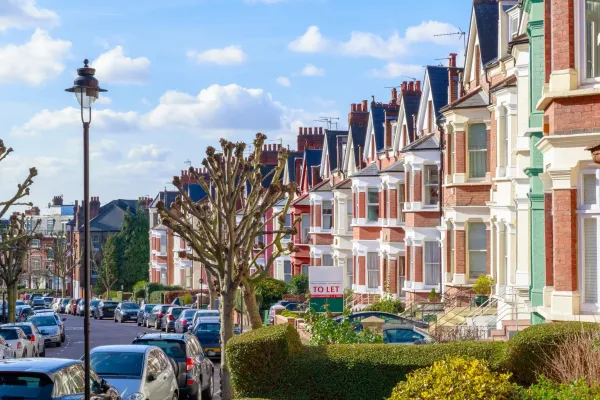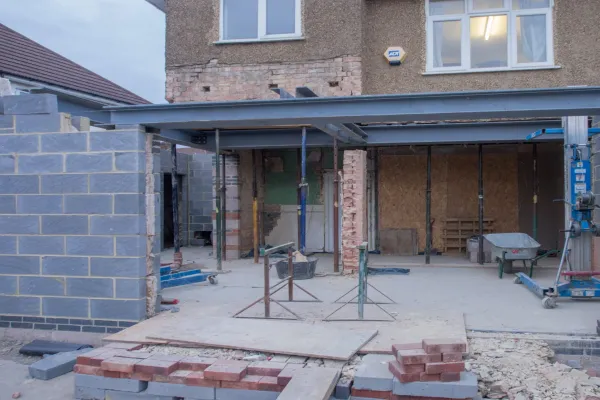Selling A House During
Probate in London
- Free Cash Offer
- No Hidden Fees
- Sell In Your Own Timeframe

Selling A House During Probate in London
Generally, selling a house or buying a house is an exciting, albeit a little stressful, process that has you ready to start your next chapter in life. Unfortunately, not all property transactions are based on cheery events. Sometimes it takes a loved one passing to get on the property market and when such an event occurs, that is when a probate transaction comes into play.
Get a free estimate of your home’s current value
What Does Probate Mean
Probate, within the context of property transactions, refers to a vital legal process that transfers ownership and assets following an individual’s passing. It is a process that navigates the intricacies of property ownership to ensure the deceased’s wishes are respected as per their legal will or declarations as ordered before passing.
When probate occurs in a small town with a few cottages, while significant to the individual, it does not necessarily affect the overall marketplace for that area. But in a city characterised by its diverse property landscape and dynamic real estate market such as London, the probate process takes on added significance. New ownership of a historical property in London or a rich benefactor suddenly deciding to modernise a property in a ran down area of London can have a massive impact on the local property value.
At the heart of probate lies the authorisation granted to the appointed executor or administrator, meaning the personnel that is legally in charge of overseeing the estate’s management, including the handling of property-related matters. If the deceased left no will, the probate process adjusts to navigate the complex territory of intestacy laws (which is a whole other matter and is much rarer when a property is involved).

Reach 98% of all active buyers...






When Is Probate Required?
Probate is generally required when the deceased owned property solely in their name, regardless of the property’s value. This includes houses, apartments, or any other real estate.
In London, where property values can be substantial, probate ensures that the legal transfer of ownership is handled correctly, protecting the interests of both beneficiaries and potential buyers.
While probate is typically necessary for properties held in the deceased’s sole name, it might not be required for properties owned jointly with another person, as the property would automatically pass to the surviving owner. Similarly, if the property is held in a trust, it may bypass the probate process. Each case is unique, highlighting the importance of seeking legal advice to determine whether probate is necessary.
Get SOLD in just 7 days
How Long Does Probate Take In London?
You can not really pinpoint an exact timeline for how long probate can take, especially regarding London’s complex property market. Every probate case will differ in time of completion depending on how detailed the will and instructions of the deceased were and the speed of the legal side of the process.
Generally, it takes around 9 to 12 months to complete probate without any added complexities, which occur far more often than you would think. If there is a unique financial arrangement or if a dispute arises amongst those listed as beneficiaries, then that will quickly slow down the probate completion time. Seeing as everyone wants to own property in England’s capital city, a dispute is very likely.
In the context of London’s challenging property market, factors such as the volume of properties owned by the deceased, the presence of multiple beneficiaries, and the complexity of the deceased’s financial affairs can slow down the probate service. The city’s high demand for legal and administrative services can also contribute to potential delays.
Get a free estimate of your home’s current value
How To Apply For Probate In London
Applying for probate in London is just like applying for probate elsewhere in the UK, just with more legal hoops to jump through once the process begins. The executor or administrator of the estate needs to gather information about the deceased’s assets, debts, and beneficiaries, then they can complete the necessary application forms and submit them to the Probate Registry.
The easiest part of the probate process is applying for probate, but the process itself is very complex. It involves legal documentation and often requires the assistance of legal professionals who specialise in probate services to ensure that the process is completed accurately and legally.
Reach 98% of all active buyers...






Does Sold Offer Probate Services?
Though Sold is primarily viewed as a property sales service, they do have probate property transaction experts in their team that can guide sellers through the probate process.
Sold understands the intricacies of navigating property sales within the context of probate and London’s property market. While they are not a legal firm, they collaborate with legal experts to provide comprehensive support to sellers while using their own experience to ensure that the process runs as smoothly as possible. That is why Sold offers a range of services designed to simplify the probate property sales process.
From property valuation to marketing, negotiations, and legal support, their platform serves as a valuable resource for sellers seeking a streamlined and transparent approach to property transactions, even within the complexities of probate. As London’s property market evolves, so does Sold’s commitment to providing sellers with efficient, tech-driven solutions, making them a valuable ally for those navigating the intricacies of probate property sales.
Explore All The Ways to Get Sold in London
Navigating Probate Property Sales with Sold
Probate property sales can be intricate and sensitive, requiring a blend of legal knowledge and real estate expertise, both of which Sold is proud to boast. As an online estate agent, Sold has an easy-to-navigate, easier-to-understand digital platform that can help to simplify the overwhelming process of a probate property transaction.
Those in the probate process can assess a range of helpful services on the Sold website, including property valuation, marketing, negotiations, and legal support. Though Sold is not a legal firm, they collaborate with legal professionals who specialise in probate, ensuring that sellers receive expert guidance along with Sold’s other services.
Sold’s team understands the emotional and legal nuances involved when dealing with probate property sales and provides sellers with a supportive environment. Their user-friendly platform allows sellers to monitor the progress of the sale, ensuring that they are informed every step of the way from the comfort of their own homes.
Get a free estimate of your home’s current value
Frequently Asked Questions About
Selling A House After Probate in London
Why Does Probate Take So Long?
Simply, probate takes so long because it is one of the most legally taxing processes in the property industry. Legal complexities often arise due to the nature of property ownership, particularly in cases where properties are jointly owned, held in trusts, or have mortgages. Addressing these intricacies requires time and precision to ensure that all legal requirements are met. The process can become more intricate when dealing with properties in a city like London, where property values are often higher, and the financial obligations may be more significant.
When Is Probate Needed?
Probate becomes a necessary process when the deceased owned property solely in their name. This is the case regardless of the value of the property, making it a crucial step for properties in London, where property values can be substantial. The process ensures a legal, issue-free transition of property ownership to beneficiaries or potential buyers. Essentially, any time legal documentation of the deceased exists, probate much occur.
However, there are other times when probate is also necessary like when a deceased individual had significant assets, such as bank accounts, investments, or personal property, even if no real estate is involved. For estates with more complex arrangements, the need for probate and legal intervention is crucial. The need for probate is a cornerstone in safeguarding property rights, settling financial obligations, and upholding the integrity of the deceased’s intentions.
When Is Probate Granted?
The process of probate is long and intense when it comes to the legal property aspect, but probate can only be classed as granted once the application process is completed, and the court is satisfied that all legal requirements have been met.
In London, the process of granting probate involves applying to the Probate Registry, along with the required documentation. The court reviews the application to ensure its accuracy and compliance with legal standards. Once approved, the court issues a document known as a “grant of probate” or “grant of representation”. This grant is an official recognition of the executor’s legal authority to carry out the necessary tasks associated with administering the estate. For properties in London, the grant of probate ensures that the property’s legal status aligns with the new owner’s rights and responsibilities.
Read More About Selling Inherited Property in London
Moving to London? Find out everything you need to know about the capital here. Selling in London, we cover that too!
We delve into who the best estate agents in London are to get your home sold quickly and easily. Find out how they work and how much they charge.
An extension is often seen as a bit of a luxury expense, the outlay being more expensive than say, tiling your bathroom! Find out the true cost of building an extension here.
Please enter your details below and a member of our team will be in touch to discuss a free valuation for your home.
"*" indicates required fields
By submitting your details, you agree that we may keep this information safely. Our Privacy Policy has further details








